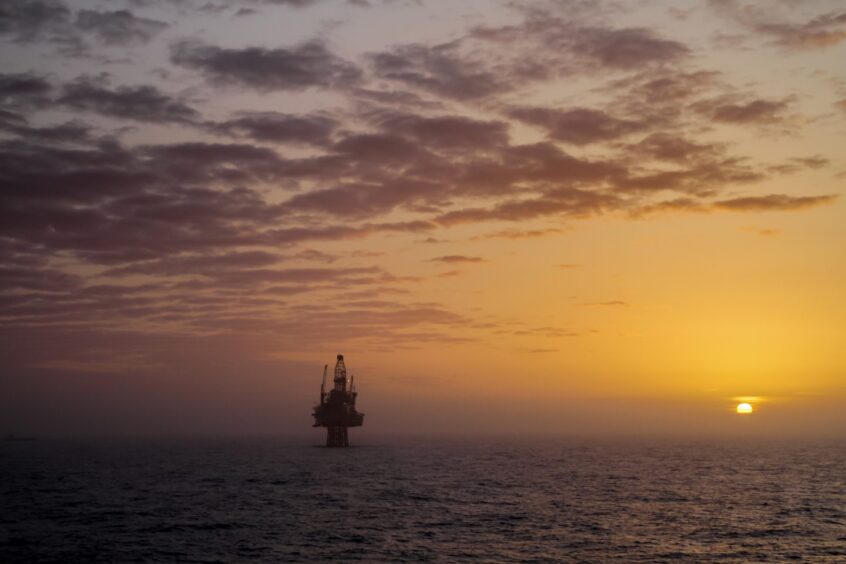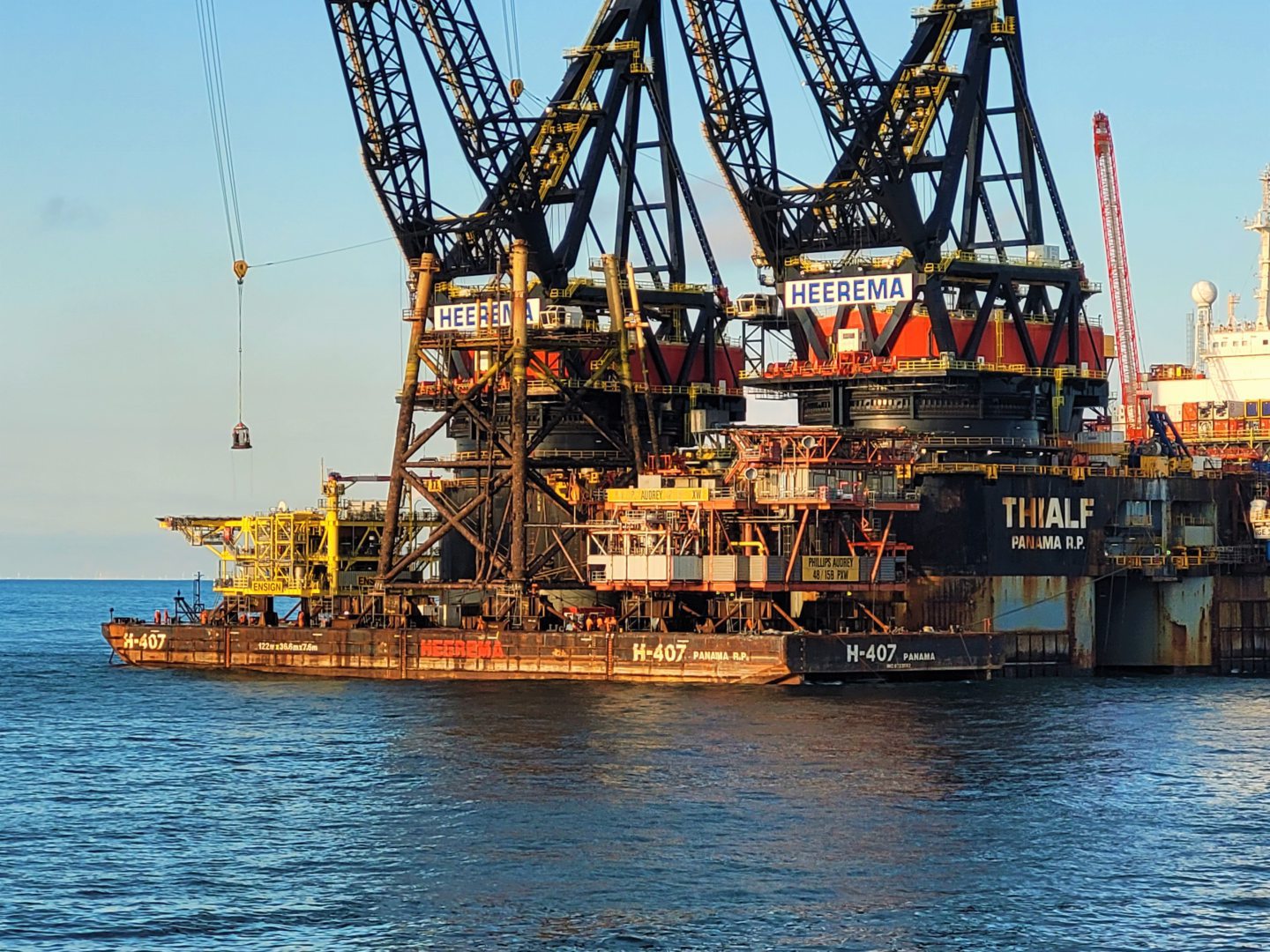
North Sea operators have raised “serious concerns” over a new plan from the NSTA regulator, warning that shutdown of UK platforms could be “dramatically accelerated”.
Talks have been ongoing for weeks on the consultation from the North Sea Transition Authority (NSTA) to overhaul its emissions strategy, which sources say has sparked anxiety in the operating community.
Key to the so-called “OGA Plan” are proposals which would require a cessation of production (COP) date for any platforms 50% above the basin average carbon intensity – which will impact many hubs in the ageing UK sector.
It would also demand that any new production pre-2030 be linked to assets “electrification ready” and anything after 2030 needs to be hooked up to a fully electrified platform under the proposals.
Failure to do so could be met with sanctions – but there are fears the measures will see assets shut down early and put operators off smaller tie-back developments, leaving the UK reliant on higher-carbon imports (assuming they come from LNG, rather than Norwegian piped gas).
Sources said the NSTA was taking a “blinkered view” on the issue, despite offshore oil and gas accounting for only 3.4% of overall UK emissions, with “unintended consequences” on production, exploration, skills and the UK Treasury’s tax take from the sector.
The NSTA said “bold action” is needed to slash emissions and protect the industry’s social licence to operate, and the consultation is designed to allow operators to express views on the challenges of electrification.
‘It’s just not an attractive proposition’
“The concern is around early COP (cessation of production),” said a person from an industry operator.
“The investment case for sustaining production versus the investment case with electrification and other decarbonisation methods – it’s just not an attractive proposition.”
They added that operators, including small players, may view the proposals as “unreasonable” if they’ve got assets with already-limited life spans.
Electrification is seen as key to meeting decarbonisation targets – but it is an expensive and complex process, and operators are weighing up the investment against the remaining life of their fields.
Sources also said the regulator is “moving the goalposts” from the North Sea Transition Deal (NSTD) signed with the UK Government two years ago, which set industry-wide emissions goals, rather than a focus on specific assets. They also cite fiscal changes since then, including the imposition of two windfall taxes.
The deal set “absolute” emissions targets for intervals to 2030 and beyond (kg of CO2 equivalent), rather than emissions intensity (emissions per barrel produced). Either way you view that, however, electrification or COP would likely be needed to hit the 2030 goals.
‘Close the industry down earlier’
“If you’re going to dramatically reduce the carbon intensity you’re allowed to have on any individual asset, then you’re going to dramatically accelerate Cessation of Production of some of the older stuff,” said another person from a North Sea operator.
“Future production? Forget it. No one is going to invest because you can’t electrify a platform that’s going to stop production in three years’ time. You can’t make the economic case for it.
“You’re not going to explore for anything because there’s nothing to tie it into that’s electrified, and it can’t make the economic case to electrify anything because it will cost too much.
“So you will basically close the industry down earlier – or many of the assets within it earlier.”
A top boss at one UK operator said “there are serious concerns about the NSTA position”.
“I think that the industry position is that the NSTA’s near exclusive focus on electrification is inappropriate since there are more cost-effective ways to reduce emissions which won’t be made if electrification is the threshold.”
In response, an NSTA spokesperson said: “Bold action is vital for industry to reduce emissions and ensure the UK has a domestic supply of energy produced as cleanly as possible. Net zero and energy security go hand in hand. Industry maintaining its social licence to operate is fundamental to being in a position to maximise economic recovery.
“Platform electrification is crucial to delivering the emissions cuts required but we understand that electrification presents challenges. This is why we are giving stakeholders an opportunity to share their views on our proposals for reducing emissions in a variety of ways.”
We need that in writing…
Sources report that, during the consultation talks, the NSTA has said it would take assets on a case-by-case basis.
Industry leaders are pushing for that to be articulated specifically in the plan – for fear of future legal challenges from NGOs or indeed future governments coming in.
The consultation runs to November 30 and the result will inform the regulator’s strategy underpinned by the UK Government, with associated sanctioning powers.
Several sources said they feel the regulator is “moving the goal posts” from the North Sea Transition Deal – a quid pro quo agreement between industry and government, while the OGA Plan is not, in its current form.
There are hopes that some leeway can be reached on the wording of the OGA Plan – and the NSTA itself has said it is a flexible tool, and the regulator will listen to alternative ways of achieving the plan’s goals.
One source said: “You’ve also got other external factors to juggle, not least the fiscal regime, the constant politicking around the industry, the noise. All of that taken as a collective does not present a particularly attractive proposition, especially if you’re seeking private finance and you’re trying to attract money into the North Sea.
“I think there’s a view of the North Sea becoming increasingly unattractive to do business.”
Another meeting with interested persons is taking place today (Monday 13) ahead of the consultation deadline.
Trade body Offshore Energies UK said the sector has already achieved a 24% reduction in emissions since 2018, and remains to committed to achieving a 50% reduction in emissions by 2030 per the North Sea Transition Deal.
HSE & operations director Mark Wilson said: “Our industry is engaging with the OGA plan currently under public consultation. We need a plan that means we meet our climate goals in the most efficient, cost-effective way possible while continuing to deliver cleaner, reliable supplies of homegrown energy, add value to the economy, support jobs and maintain a world class supply chain spread across the UK.
“The UK offshore oil and gas industry, through the North Sea Transition Deal was one of the first industrial sectors to commit and set out a plan to reach net zero sectoral emissions by 2050.
“The North Sea Transition Deal continues to be an exemplar to energy producing nations across the world, showing how governments and industry can work in partnership to drive down emissions and deliver a successful homegrown energy transition over the coming decades.”
Recommended for you


 © Supplied by Spirit Energy
© Supplied by Spirit Energy © Supplied by DCT
© Supplied by DCT